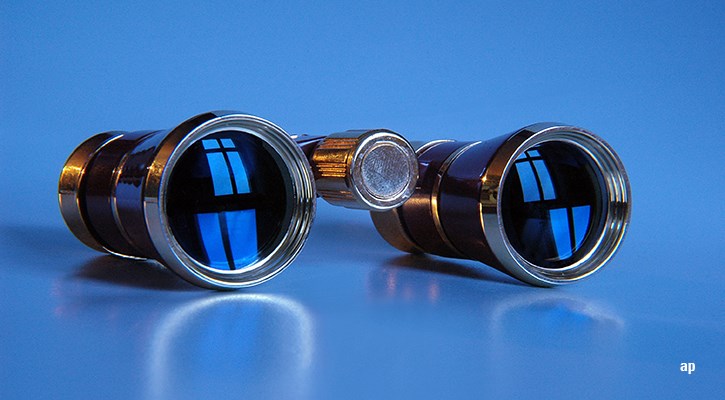
Graham Muirson is worried that stock market volatility might hit his pension funds prior to retirement.
The 63 year-old is hoping to retire next year but says his investments have been more volatile over the past 12 months.
“I know these are long term investments and it doesn’t pay to check the balance too frequently, but I now have a mobile phone app that allows me to check what my pensions are worth and it is tempting to keep looking,” he says.
Insurance industry veteran Graham adds that, while there have been some short term bumps, he has been surprised by how well his funds have performed over the past half decade.
“I have one final salary pension from a previous job, which will be the main part of my retirement income. Separately, I have a defined contribution pension from a different employer. When I left that job about five years ago it was only worth almost £200,000. It has nearly doubled since then.”
Delay a Year?
Graham now hopes to take a tax-free lump sum from this pot when he stops work, and will use those funds to top up his income from the final salary pension scheme, which should provide him enough cash to cover day-to-day living expenses until he gets his state pension later on.
“Though I’m surprised by how much this particular pension has grown, I am aware it can also fall quite sharply at times too. At the start of the Covid-19 pandemic it fell by about 30%, and in recent months it has been drifting back down again.”
That particular pension is invested in a range of passive funds, the lion’s share of which are in equities. “It’s a Fidelity pension, and the fund is invested in a range of Fidelity tracker funds. There’s a UK and European fund, for example, but also a Pacific-rim fund, Japanese fund and a US fund.”
Currently Graham says around 15% of this pension is in index-linked gilts and other fixed income investments. “Hopefully this is providing a bit of ballast in case markets go into freefall again. I have thought about increasing this but at present have decided this is not necessary.
“Although I am planning to take out some of this pension in cash next year, most of it will remain invested for a longer period of time, so I want it to stay in growth assets, particularly with inflation picking up again. Shifting it all into bonds seems a bit overly cautious, and to be honest I am not sure how well those assets are holding up anyway.
“If there is another serious shock - perhaps if this Omicron variant is much worse than we thought – then I always have the option to delay my retirement for another year and hope markets pick up again.”
Core And Explore
Graham lives with his wife and daughter in London. His eldest daughter is now at university, so he has looked at his pension options in a bid to examine his budget and make sure there is enough money to help with university costs.
Though Graham mainly holds investments via his pensions, he does also have a small number of ISA holdings.
“I’ve taken these out over the years, if I’d had a bit of spare money and just wanted to build up some shorter-term savings,” he says.
Graham invests in some direct shareholdings too, as well as in some funds. He says he has quite a large shareholding in the French insurance company AXA (AXA), for example.
“Initially I think I had shares via a save-as-you-earn scheme. But they did well so I have just kept some. It is years and years since I worked for them but I’ve made good gains on them.”
The shares, which are listed on the French stock exchange, have delivered steady returns in recent years and yield around 5%.
He also a invests in a number of funds, but, in his own words, he describes the portfolio as “a bit of a rag-tag collection.”
“If there’s a theme that particularly catches my attention I sometimes make a small investment on the hope that it will come good,” he adds.
“I feel like I can take a bit more risk with these investments as they are not my core retirement holdings.”
The Bigger Picture
For instance, Graham invested in Legal & General’s Global Robotics and Automation exchange-traded fund (ETF) two years ago.
“I have seen how the industry I work in has been transformed by technology and how it is starting to use artificial intelligence,” he explains.
“This does seem to be an interesting area to invest in — though it is not something I know a lot about.
“I only invested in this fund about 18 months ago, and only a small amount. It may be a bit late, I’m sure those who got in earlier have seen better gains, but I’ve been pleased with the results to date.”
According to Morningstar data, investors in this fund have seen total annualised returns of 25.14% over the past three years. The fund has a Morningstar quant rating (MQR) of silver.
Elsewhere, Graham says he has previously invested in more general technology funds, and was at one time invested in biotech.
“I think this was another AXA fund, but I sold out of it a couple of years ago. I had good returns, but I think if I’d have held on longer it would have been better, as that sector that has probably seen valuations increase substantially with all the investment in Covid-19 vaccines and treatments.
“However, we wanted to do some work on the house, so I cashed in some of my ISA holdings to fund it.
“It’s easy to say I should have sold earlier or later. I think it’s important to think what you are saving for. It’s easy to get distracted by numbers on a statement but at the end of the day it’s about looking at the big picture.”




























